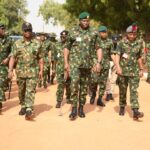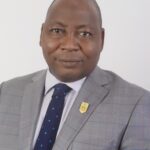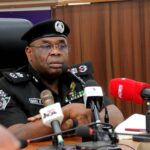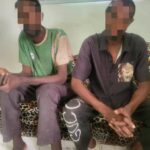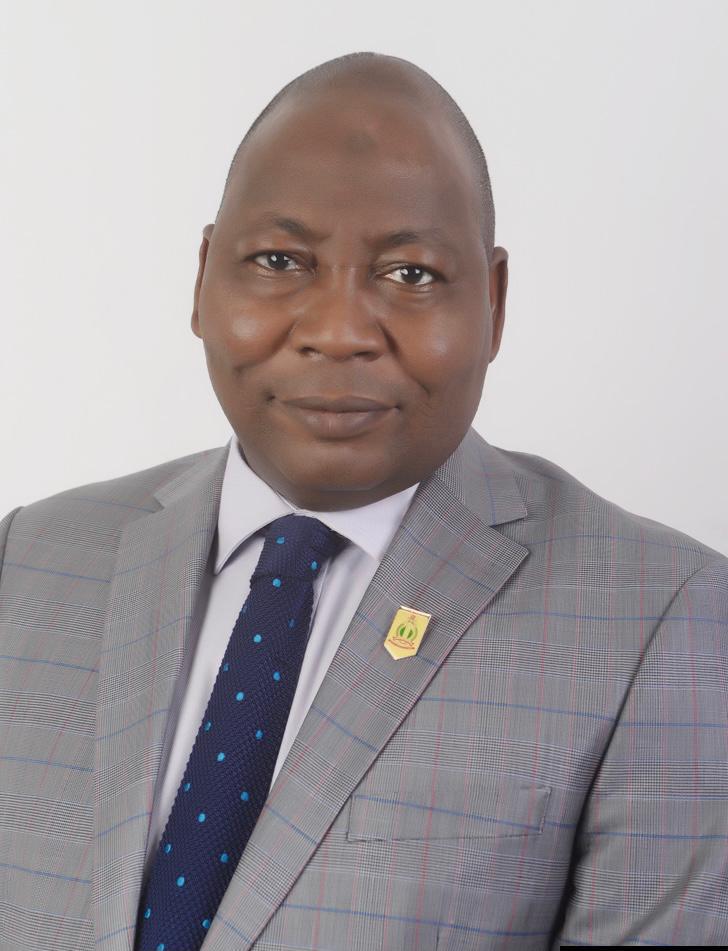BY
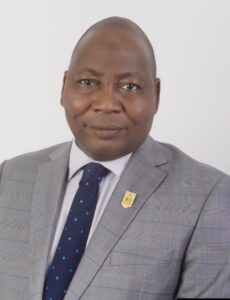
SANI KUKASHEKA USMAN (rtd) mni fnipr
Nigeria, the largest Black nation in the world and Africa’s most populous country, proudly hailed as “the Giant of Africa,” stands at a crossroads. Its unity is under siege, and the cracks are not just threatening its identity but also obstructing its path to development, peace, security, and global stature. What’s most concerning is the pervasive indifference to these existential challenges, as if the gravity of the situation has yet to sink in. This looming crisis demands urgent attention, which is why I feel compelled to sound the alarm and draw focus to this critical issue before the consequences become irreversible.
Today, our society is deeply divided along tribal, religious, and regional lines, with these affiliations often taking precedence over national interests and identity. This trend is dangerous, as it undermines Nigeria’s potential for progress. Corruption, insecurity, and economic instability are all symptoms of a lack of national unity and collective will.
However, despite the importance of national unity, successive governments over the years were not able to achieve the deliberate and sustained efforts needed to transform Nigeria’s diversity into an advantage. Instead, Nigeria experiences noticeable progressive divisive tendencies, rhetorics, hate speech, and ethnic and religious profiling which have been allowed to flourish, often without consequence. These actions further deepen societal fractures and raise serious concerns about the nation’s future.
The absence of unity among Nigerians often leads to conflicting efforts and a lack of cohesion on critical national issues, significantly impeding the country’s progress and development. When citizens and stakeholders fail to align their goals and collaborate effectively, resources are wasted, growth opportunities are missed, and the nation struggles to address its challenges efficiently. Building a sense of shared purpose and fostering national unity are therefore essential to unlocking Nigeria’s full potential and ensuring sustainable advancement.
With over 250 ethnic groups and a complex religious landscape, Nigeria needs a strong foundation of national unity and cohesion to overcome its challenges and achieve its full potential as envisioned by its founding fathers.
The Dangers of Division
Nigeria today is a nation fractured along tribal and religious lines, plagued by mistrust, suspicion, and a constant undercurrent of conflict across its six geopolitical zones. Disunity fuels corruption by enabling the exploitation of divisions for personal gain. Trust is eroded, accountability diminishes, and those in power often operate with impunity, enriching themselves while the nation suffers.
This atmosphere of division also enables insecurity to thrive. Extremist ideologies and criminal enterprises exploit societal fractures, gaining footholds and undermining the fabric of society. The incessant ethnic and religious clashes create fertile ground for violence, extremism, and instability.
A divided nation is akin to a house with crumbling foundations. Nigeria cannot effectively tackle its challenges or harness its vast potential without a united front. National unity is not just a lofty ideal but a practical necessity for survival and development.
Disunity, whether driven by ethnicity, religion, or clan loyalties, often leads to violent conflicts, economic devastation, the displacement of entire populations and state failure. The collapse of Yugoslavia, the ongoing instability in Somalia, and the decades-long conflict in Sudan and South Sudan all demonstrate the devastating consequences of deep-seated divisions and lack of unity. These examples serve as stark reminders of the importance of national unity and the dangers of allowing divisions to fester and erupt into violence.
Activities and institutions play a vital role in uniting Nigerians by bridging ethnic, religious, and regional divides. Events such as the World Cup, African Cup of Nations, and other local and international sporting competitions ignite shared passion and collective pride as Nigerians rally behind their national team. Similarly, cultural festivals like the Calabar Carnival, Osun Osogbo Festival, and Argungu Fishing Festival celebrate Nigeria’s rich diversity and provide platforms for inter-ethnic and inter-religious interactions, fostering mutual understanding and appreciation. However, the irregular nature of these events calls for more consistent efforts to sustain their unifying impact.
Institutions like unity schools, the National Youth Service Corps (NYSC), and military service have also been instrumental in promoting national integration. By bringing together young Nigerians from diverse backgrounds, these institutions nurture lifelong relationships built on mutual respect and understanding, free of ethnic or religious bias. Such initiatives contribute to breaking down barriers, cultivating a spirit of inclusivity, and fostering a sense of shared identity and purpose among Nigerians.
Therefore, leaders can amplify these efforts by actively participating in these platforms and using them to promote national dialogue and foster inter-ethnic and inter-religious harmony. They should prioritise cross-cultural exchanges, expand interethnic activities in schools, and implement inclusive policies in sports, education, and service programs. Such strategic investments will deepen unity, enhance social cohesion, and reinforce a collective sense of belonging among all Nigerians.
The Power of Unity
Across the world, unity is the cornerstone of meaningful development. Nigeria fought a three-year civil war to preserve its unity. A united Nigeria can collectively combat corruption, one of the nation’s most persistent challenges. When citizens see themselves as part of a shared destiny, they are more likely to demand transparency, accountability, and good governance from those leading them.
Insecurity also thrives in a divided society. However, when Nigerians prioritise safety and peace over regional or religious differences, the forces of insecurity will undoubtedly face a formidable, unified opposition. Similarly, national unity can help address social vices such as criminality. A united populace can channel its diversity into innovation, entrepreneurship, and education, creating a robust and inclusive economy.
The United States, Germany, and the United Arab Emirates all exemplify the power of unity. The US, a diverse nation, has harnessed its “E Pluribus Unum” spirit to overcome challenges and achieve global prominence. Germany, after decades of division, reunified and quickly became a European powerhouse. The UAE, a federation of diverse emirates, demonstrates how collective action can transform a region and achieve remarkable economic and social progress. These examples highlight the significant advantages that unity can bring, from economic prosperity and political stability to global influence.
Overcoming Barriers to National Unity
Nigeria’s diversity should have been a source of cultural richness and a potential tourism gold mine, but it is too often weaponised to create division. Some politicians and religious leaders frequently exploit differences for personal gain, sowing seeds of discord and polarising the public. Religion meant to serve as a moral compass, is often manipulated to deepen divides among Nigerians.
To overcome these barriers, Nigerians must prioritise national identity over ethnic and religious sentiments or affiliations. Education is vital in this process. The recent reintroduction of history into school curriculums is commendable, as a people without a sense of history lack direction. Schools should teach the value of diversity and the dangers of division, laying the groundwork for a united future.
Interfaith and interethnic dialogue is essential for building trust and understanding. Platforms for open discussions among diverse groups can dismantle prejudices and promote tolerance. Such dialogue helps individuals move beyond stereotypes, fostering a shared commitment to national progress.
However, equity and justice must form the foundation of national unity. When citizens feel represented and valued, regardless of ethnicity, religion, or region, they are more likely to embrace a collective identity. Ensuring fair resource distribution, providing equal opportunities, and holding leaders accountable are critical steps in this direction.
The Role of Leadership and Citizens
Fostering national unity in this country requires a multi-pronged approach involving responsible leadership, active citizen participation, and the dedicated efforts of institutions like the National Orientation Agency (NOA).
Similarly, leadership at all levels must prioritise inclusivity and equity. Policies that favour one group over another breed resentment and undermine trust; therefore, such policies should be revisited and reviewed. It is also pertinent to note that leaders who champion fairness, justice, and the common good inspire citizens to transcend parochial loyalties and work towards national development, peace, and unity.
Citizens play a vital role in fostering unity through acts of tolerance, understanding, and solidarity. Organisations like the Alumni Association of the National Institute (AANI), the Nigerian Institute of Public Relations (NIPR), and the Nigerian Society for Peace Studies and Practice (SPSP) play crucial roles in promoting peace and unity through advocacy, enlightenment, and dialogue. Their efforts, along with those of the Institute for Peace and Conflict Resolution (IPCR) and the Counselling Association of Nigeria (NASSON), must be acknowledged and supported.
The National Orientation Agency (NOA) plays a central role in educating and sensitising the public on the importance of national unity and cohesion. Through public awareness campaigns, community engagement programs, and civic education initiatives, NOA can effectively counter divisive narratives and promote a shared sense of national identity.
Government and private sector collaboration is essential. Programs like the National Youth Service Corps (NYSC) are vital tools for interethnic integration. Strengthening NYSC and encouraging interethnic marriages with incentives can significantly deepen national cohesion.
Leadership visitations and cross-regional engagements by traditional, religious, and political leaders can foster trust and understanding. Education reform is equally important. Curriculums should emphasise shared values, histories, and aspirations to nurture unity from an early age. Responsible journalism that counters divisive narratives is another key factor in fostering a united and harmonious nation.
The Way Forward
Nigeria’s immense potential is undermined by divisive tendencies and a lack of unity. It is time for all Nigerians to rise above divisive rhetoric and embrace the shared goal of building a prosperous, secure, and inclusive nation. This requires a concerted effort from all stakeholders, with the National Orientation Agency (NOA) playing a very important role.
NOA, with its extensive reach and network, can effectively disseminate messages of unity, tolerance, and national cohesion through innovative public awareness campaigns, community engagement initiatives, and civic education programmes. By countering divisive narratives and promoting a shared sense of national identity, NOA can significantly contribute to fostering national unity and cohesion among Nigerians.
Therefore, the government must actively support and empower NOA with the necessary resources and mandate to effectively carry out this onerous responsibility. This includes strengthening its capacity for research, data analysis, and impact assessment to ensure the effectiveness of its programmes.
Beyond NOA’s efforts, the government must build on existing initiatives like the National Youth Service Corps (NYSC) and partner with bridge-building organisations like AANI, NIPR, and SPSP. These organizations, along with the Institute for Peace and Conflict Resolution (IPCR) and the Counselling Association of Nigeria (NASSON), can play important roles in promoting dialogue, fostering understanding, and building bridges across ethnic and religious divides.
Citizens also must actively participate in the process of nation-building by embracing tolerance, understanding, and solidarity. Promoting interethnic marriages, encouraging cross-cultural exchanges, and actively countering hate speech are the right steps towards fostering a more cohesive society in this nation.
Consequently, a united Nigeria is not just a dream but the only path to achieving greatness. Together, with the active involvement of NOA, government, civil society organisations, and all citizens, we can create a nation where every individual thrives, fulfilling the promise of a brighter future. As the timeless adage goes, “United we stand, divided we fall.” The future of Nigeria depends on our ability to embrace unity and forge a common destiny.
The writer, Sani Kukkasheka Usman (rtd) mni fnipr, is a retired senior military officer, public relations and security consultant dedicated to national unity, peace and security. He actively shares his insights and engages with the public on his Facebook and X platforms via @skusman.


